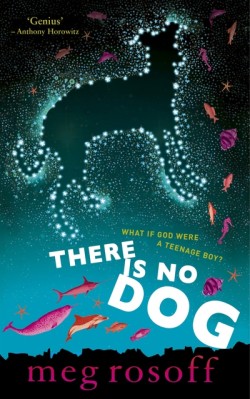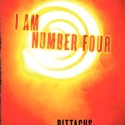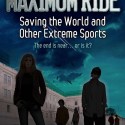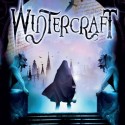There is No Dog
The Bible got it right; but only partially. In the beginning was God. Well, Bob, actually. He’d been hired to create a new planet. So he did: he separated earth and sea and sky, and planted stars up above and plants in the ground. He created animals; fish, birds, mammals, reptiles. All sorts of things. But Bob’s greatest creation was humankind. He made them in his own image. And he fell in love with them. A recipe for disaster? Hell yes.
There is little doubt that the people at Penguin, responsible for publishing Meg Rosoff’s latest novel, were hoping for a somewhat controversial bestseller: titled There is No Dog (Dog is God spelled backwards- get it? Yeah, it’s not funny and has absolutely nothing to do with the novel) the novel is based upon the notion of God being a teenage boy. However, there is little controversial about it; Rosoff doesn’t slam Abrahamic faiths like Pullman did so heavy-handedly in His Dark Materials, doesn’t ridicule people for believing such things and most importantly of all, seemingly didn’t scoff whilst she wrote There is No Dog. The idea is a perfectly valid and splendid idea full of potential. The faux-controversial drivel of the marketing department isn’t.
There is No Dog surprised me; rather than being a more serious, unflinching representation of Rosoff’s beliefs, it verges on the fairy-tale and fantasy genres to produce quite a light yet abstract read that makes it suitable for readers of younger ages as well as older teens such and adults. Bob is a somewhat irresponsible, hopeless, and for want of a better word, horny, deity. Under the guidance of Mr B’s hand, Bob began a somewhat marvellous creation but since those six days (and not forgetting the rest day after), Bob has been a little neglectful from his planet, instead falling in love with beautiful immortals and ruining the planet as those relationships eventually lead to break up and some catastrophic natural disasters.
I should think it be quite hard for Rosoff to pull of a typical teenager when a lot of teenagehood is dominated by day-to-day things such as school, which Bob himself, of course, doesn’t experience, but done it she has, injecting more than a little spontaneity into the titular character. Bob is all over the place, quite literally: one moment a hopeless romantic, the next angry, pissed-off and lazy. In that sense, he is easily relatable. However, I had some trouble connecting with all the characters fully. Though I empathised with the situation, I struggled to emotionally invest myself to any great degree. Partly, I think this is due to the abstract nature of the novel: there is little sense of “real life”, even for the mortals, with which I can relate my own experiences. And the Eck? I was somewhat perplexed how he/she/it was relevant, and though cute, I felt was rather redundant.
Rosoff’s greatest downfall is her almost complete and utter disregard for any plotting. I was left continually wondering where Rosoff was going to take There is No Dog, and this lack of direction also lead to a lack of patience with the novel. And though Rosoff reaches a philosophical climax, there is little else to signify the culmination of the novel: things just seem to run in circles: the end of the novel could as well have been the beginning or middle.
Rosoff is no Douglas Adams and There is No Dog is no Hitchhiker’s Guide; the novel relies more in its conceptual basis than execution to deliver entertainment and chuckles. There is No Dog is strictly only for those who can exercise a little patients with the plot, but even then don’t expect it to be more than a light, slightly amusing read. Try it if you’re intrigued; otherwise, let it pass.






What did you think about There is No Dog?